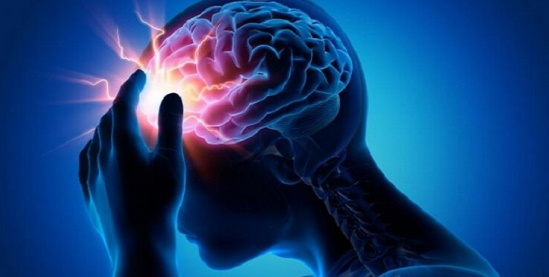Expert opinions and online advice on adult epilepsy delivered via your computer or mobile device. Second opinion is available wherever there is an internet. All you need is a PC or a smartphone.
Epilepsy is one of the most common neurological disorders. Epileptic seizures present a health risk and have a major impact on a person's life.
What is the disease about?
Five percent of all people have an epileptic seizure once in their life. The disorder can occur at any age. Most often it concerns children and adolescents, but adults are also susceptible to the disease.
Epileptic seizures are triggered by a disturbance in the electrochemical signal transmission of the brain nerve cells. It may remain limited to one region of the brain ("focal seizure") or spread throughout the brain ("generalized seizure"). Correspondingly, epileptic seizures can have different manifestations.
How does it develop?
Single or serial convulsive seizures in adults can be provoked by congenital and acquired damage to the brain structure, acute irritations such as those caused by high fever, alcohol poisoning or brain inflammation or meningitis. However, the true causes of adult epilepsy often remain unexplained.
An epileptic seizure can be figuratively called “a thunderstorm in the brain". The complex electrochemical stability of the brain's electrical activity is thrown out of balance. The visible consequence is a temporary, seizure-like disturbance of wakefulness, consciousness, bodily functions, and voluntary movements of various types and duration.
Epilepsy manifestations
There are many different symptoms of the disease. They may change during the course of the disease.
The most common signs of the disorder in adults are:
- brief loss of consciousness;
- loss of consciousness, stiffness, twitching of arms and legs;
- febrile convulsions;
- partial disability;
- severe impairment of behavior or intelligence;
- loss of speech.
How is it diagnosed?
In order to make an accurate diagnosis and choose the right treatment, it is important to know and understand the type of seizures and their features. For this purpose, doctors conduct detailed interviews with the patient or the family, and review video recordings of seizures. Of key importance are routine electroencephalography, as well as video EEG test results. The latter is a recording of bioelectrical brain activity, combined with video recording of what the patient is doing or experiencing. The diagnosis is backed up by laboratory tests and high-resolution magnetic resonance imaging (MRI) of the head.
Positron emission tomography (PET) and single-photon emission computed tomography (SPECT) scans provide additional data on the brain and its metabolism. The examination routine also includes laboratory tests of blood, serum, and cerebrospinal fluid to rule out or detect immunologic or infectious diseases.
Treatment of epilepsy in adults
The modern approach to the treatment of this disease is holistic, that is, comprehensive. Therapy is based on the individual clinical situation, the patient's life circumstances and needs. The main focus is on the careful selection of the type and dosage of antiepileptic drugs aimed at getting rid of seizures, or at least controlling their frequency and preventing their consequences.
In certain cases, doctors resort to surgical removal of epileptogenic foci or stimulation procedures (vagus nerve stimulation, VNS).
What is the service about?
A second opinion on adult epilepsy is a service which makes it possible to get a remote consultation of a qualified specialist, based on available medical summary or study results.
It might be helpful:
• to confirm the existing diagnosis;
• to make sure that the recommended treatment, e.g., surgery, is correct;
• to obtain information on advanced methods of adult epilepsy diagnostics and treatment;
• to get expert commentary on previously performed exam results;
• to make the right choice if there are two or more possible therapeutic options.
What will the client get?
A diagnostic conclusion and disease treatment/control recommendations based on the available data. If the data is insufficient, follow up exams will be recommended.
What data should be provided to get a second opinion?
Written reports:
- Neurology exam report (recommended)
-
Electroencephalography report (obligatory)
-
Video EEG report (recommended)
-
Up to 5 pages are included in the basic fee eo EEG test report (recommended)
Radiology data:
- Skull MRI
- Skull CT
- Up to 1 exam is uncluded in the basic fee
What are the second opinion formats and terms?
Written second opinion:
A written review of the available medical data, including the consulting specialist's conclusions and suggestions of treatment/follow-up procedures, or recommendations of follow up diagnostics. Report size: up to 1 page.
Phone consultation:
All services contained in the written second opinion plus an up to 10-minute telephone talk in which the consulting expert shall check the symptoms, explain the suggested treatment plan and answer the patient's questions.
Video consultation:
All services contained in the written second opinion plus an up to 15-minute video conference with the expert including visual examination, symptoms check, comment on radiology exams, explanation of the suggested treatment plan and answering the patient's questions.
Specialists in Adult Epilepsy
You do not have to spend hours getting through busy hospital lines, or sitting in waiting rooms. Expert advice will be delivered fast and free of your effort.
Sort by: [[ s.txt ]]sortsort
Nothing found, try changing search options
